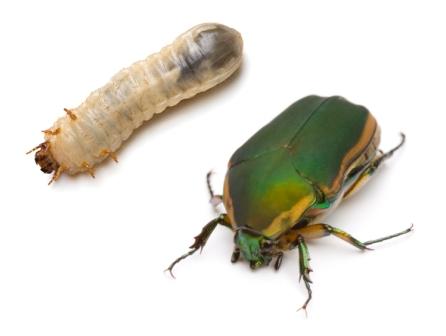Navigating Neonicotinoid Restrictions
With more states implementing restrictions on neonicotinoid insecticides, professional lawn care operators and landscape managers face the challenge of providing effective grub control while remaining compliant with environmental regulations. Since 2014, many regions have reduced or banned the use of neonicotinoids such as imidacloprid, clothianidin, and thiamethoxam—once standard tools for preventing turf damage.
Why Neonicotinoid Restrictions Matter for Turf Professionals

Neonicotinoids have historically been widely used to control white grubs and other soil-dwelling turf pests. However, growing concerns over pollinator safety, environmental persistence, and runoff have led to stricter regulations. For professional applicators, adapting integrated pest management (IPM) strategies is essential to maintain healthy turf without violating local or state laws.
Non-Neonicotinoid Alternatives for Effective Grub Control
Products like Acelepryn™, which use non-neonicotinoid chemistry, have become essential tools for maintaining grub-free turf under these new restrictions. Acelepryn™ targets major grub species, including Japanese beetle, European chafer, and June beetle larvae, and also controls other turf-damaging insects while minimizing risks to pollinators and beneficial insects.
To achieve optimal results, applications should occur early in the season so the active ingredient can move through the soil profile before grub larvae hatch. Combining insect control with slow-release fertilizers can streamline services while enhancing turf vigor.
Best Practices for Turf Health and Grub Prevention
Professional lawn care operators should integrate the following practices alongside chemical control:
-
Apply insecticides in late spring to early summer before grub hatching.
-
Conduct regular turf inspections for early signs of grub activity, such as spongy or brown patches.
-
Promote proper mowing practices, removing no more than one-third of leaf height.
-
Core-aerate every one to two years to support deep, resilient roots.
-
Water deeply and infrequently to encourage healthy turf.
-
Avoid over-fertilizing areas prone to grub activity.
Client Education and Professional Advantage
Educating clients about the importance of preventative grub control under neonicotinoid restrictions can strengthen trust and position your business as a knowledgeable, environmentally responsible service provider. Highlighting early inspections, timely applications, and cultural practices demonstrates expertise and provides tangible value to clients.